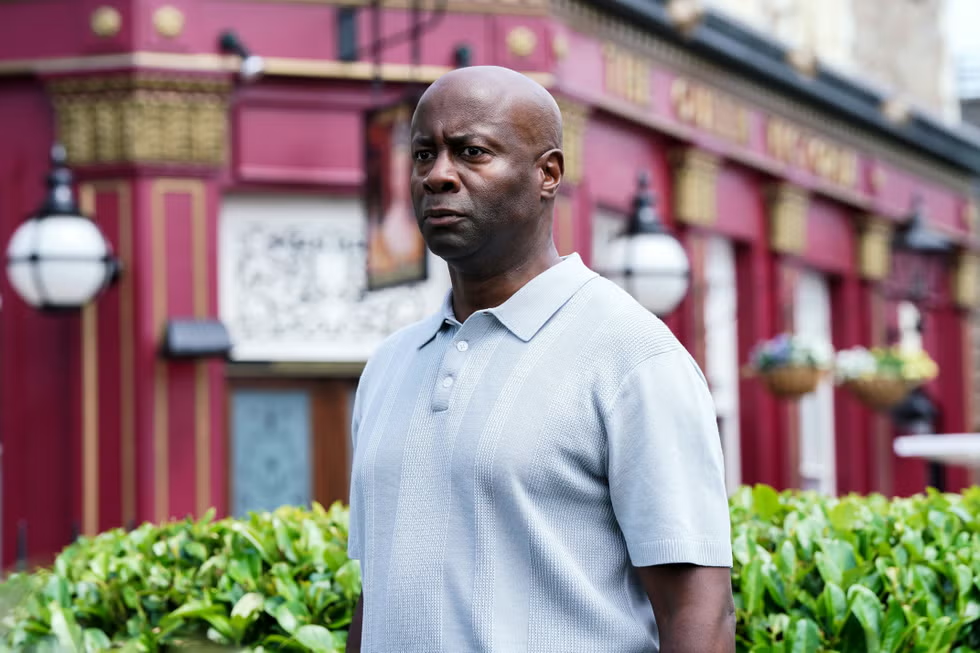Turns out Joel’s cruel words toward Kat stem from a dark past: previously diagnosed with controlling tendencies and deep-seated resentment toward women—especially linked to his mother…

In the turbulent realm of soap opera narratives, few plots unravel quite like the intense dynamics found in *EastEnders*. Recent episodes have shed light on Joel, a character whose cruel behavior toward Kat reveals alarming insights into his past. Upon closer examination, we discover that this cruelty can be traced back to psychological issues, specifically his previously diagnosed controlling tendencies and a deep-seated resentment toward women. Such traits may stem from complicated relationships—especially with his mother—which have left an indelible mark on his psyche.
The Effects of Childhood Trauma

Joel’s controlling tendencies likely have roots anchored in his formative years. Childhood trauma often shapes how individuals relate to others, and in Joel’s case, it manifests as aggression and condescension towards women. Psychologists frequently emphasize the role of early parental relationships in carving out patterns of behavior later in life. For Joel, the presence of a troubled maternal relationship could have fostered feelings of inadequacy and frustration, emotions that may be misdirected into his interactions with those like Kat. His harsh words serve as a defense mechanism, drawing from his own unresolved issues and deep-seated insecurities.
This aspect of Joel’s character raises critical questions about the cycles of abuse and resentment that can persist through generations. When parents display controlling behaviors or harbor unresolved hostilities, they inadvertently teach their children that these attitudes are acceptable. Joel’s verbal onslaughts toward Kat are not merely random acts of cruelty but rather the culmination of his internalized beliefs, reflecting a distorted worldview shaped by his past.
The Consequences of Toxic Masculinity

In dissecting Joel’s actions, it’s imperative to address toxic masculinity, a concept that encapsulates the harmful standards and expectations placed on men by society. These standards often de-emphasize emotional vulnerability and esteem gentleness, forcing men to conform to an archetype of aggression and dominance. Joel’s pattern of treating Kat poorly aligns with such toxic ideals, portraying women as objects of control rather than individuals with their own agency and feelings.
This toxic attitude not only harms women but also diminishes the emotional well-being of men who subscribe to these ideals. Joel’s outbursts signal a desperate grasp for power, a misguided attempt to compensate for deep-rooted feelings of inferiority. His challenge lies in recognizing these patterns and confronting the emotional scars that drive his unkind behavior toward Kat and others.
Breaking Free from the Cycle

The narrative around Joel offers viewers an opportunity to reflect on broader themes of acknowledgment and change. Characters like Kat embody resilience, often displaying remarkable strength in the face of adversity. Through their interactions, a potential path forward emerges—one where healing, understanding, and forgiveness become catalysts for transformation. Joel’s story can pivot from one of hurt and control to learning and growth, showing that people can change when they acknowledge their past and seek help.
Ultimately, it will be interesting to see how Joel’s journey unfolds. Will he recognize the errant beliefs and behaviors that have dictated his interactions with women? The audience will be on the edge of their seats, curious about whether he can break free from his dark past and pave a new way forward. This potential character arc serves as a poignant reminder of the pervasive impact of childhood experiences and the power of empathy in rewriting narratives.
As the plot continues to thicken in *EastEnders*, fans of the show must remain engaged and committed to understanding the deeper layers of its characters. Joel’s journey serves as a powerful reflection of real-world issues relating to trauma, control, and the quest for emotional health. By viewing these characters through a compassionate lens, we can foster a more nuanced understanding of their motivations and struggles.
Stay tuned to *EastEnders* as this dramatic saga unfolds—each episode will undoubtedly provide fresh insights into how characters confront their pasts and navigate their complex relationships.








